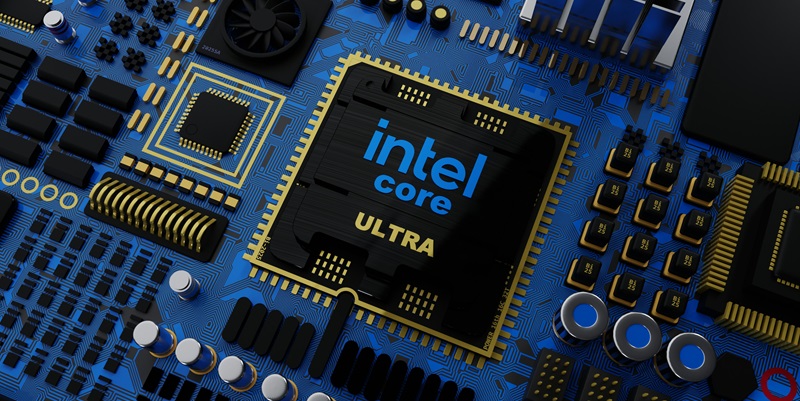Intel’s recent decision to extend warranties on its Raptor Lake CPUs by two additional years, providing a total warranty of five years from the date of purchase, is a significant move aimed at addressing customer concerns. This change follows the acknowledgment of critical issues affecting these CPUs, particularly an instability issue caused by a microcode flaw. This flaw results in excessive power usage during high-performance activities, causing permanent damage and system crashes. These problems impact all affected models, including the Core i5, i7, and i9 with TDPs exceeding 65W.
Critical Issues and Extended Warranty
Microcode Flaw and Its Impacts
The microcode flaw identified in Raptor Lake CPUs has proven to be more than a minor hiccup, causing severe performance instability. Users have reported excessive power usage during high-intensity tasks, leading to system crashes and even permanent hardware damage. The consequences of such a flaw are particularly detrimental for high-performance CPUs, where reliability is paramount. By extending the warranty to five years, Intel is attempting to reassure customers of their commitment to product reliability and support. However, this measure alone may not be sufficient if the microcode issues continue to wreak havoc on users’ systems.
Affected Models and Performance Implications
The Core i5, i7, and i9 CPUs, particularly those with TDPs exceeding 65W, are the models most affected by this microcode flaw. These CPUs, often used in high-performance computing environments, are integral to a broad range of professional and gaming applications. The instability and excessive power usage during peak performance not only degrade the user experience but can also result in significant financial losses for individuals and businesses relying on these processors for critical tasks. By acknowledging the issue and extending the warranty, Intel hopes to mitigate some of the damage to its reputation and provide a measure of assurance to its customer base.
Challenges with Customer Support and Intel’s Response
Complications in the RMA Process
One of the significant challenges Intel faces in addressing this issue is the problematic Return Merchandise Authorization (RMA) process. Despite encouraging customers to contact support for replacements if their CPUs fail, many have found the process fraught with difficulties. A Reddit user under the handle jerubedo shared an experience of trying to replace two Core i9 14900K CPUs, only to be met with suspicion from Intel about the authenticity of the chips. Intel initially refused to provide replacements or refunds, suggesting the user deal with retailers instead. This problematic approach stands in stark contrast to the more accommodating policies of retailers such as Amazon and Micro Center, which allowed returns outside the usual return window.
Need for Streamlined Support Channels
Intel cannot afford to mishandle the RMA process given the significant product issues at hand. Streamlined support channels and clear communication with customers are essential for managing replacements effectively. The current state of the RMA process has highlighted Intel’s need to improve its customer service protocols. Moving forward, ensuring that affected users can easily and swiftly obtain replacements will be crucial in regaining consumer trust. Furthermore, the company’s commitment to releasing a patch to mitigate the ongoing bug is noted. Although this patch may help future users, those already experiencing the issue will still require replacement CPUs, making a smooth RMA process even more urgent.
Financial Challenges and Their Implications
Layoffs and R&D Spending Cuts
In addition to the technical and customer service challenges, Intel is also grappling with significant financial pressures. The company recently decided to lay off over 15,000 employees and cut research and development spending. These cuts are, in part, a consequence of missed opportunities in the burgeoning field of AI technology. Such substantial reductions in workforce and R&D could have far-reaching implications for Intel’s ability to innovate and maintain high standards of customer support. Tightening budgets could also impact the company’s responsiveness to existing customers dealing with defective products and seeking replacements or refunds.
Potential Impact on Customer Support Quality
Intel has recently extended the warranty on its Raptor Lake CPUs to five years, a notable increase from the original three years. This extension aims to address and alleviate customer concerns, especially after the company identified critical issues with these processors. A significant instability problem has been traced back to a microcode flaw that causes the CPUs to consume excessive power during high-performance tasks. This flaw can permanently damage the processors and result in system crashes. The instability and power usage issues affect all models equipped with TDPs higher than 65W, including the Core i5, i7, and i9. By offering a five-year warranty, Intel aims to build customer confidence and demonstrate its commitment to resolving these problems. This proactive measure seeks to improve the user experience and assure customers that any potential issues will be covered for an extended period, thereby reflecting Intel’s dedication to quality and reliability in its products.

